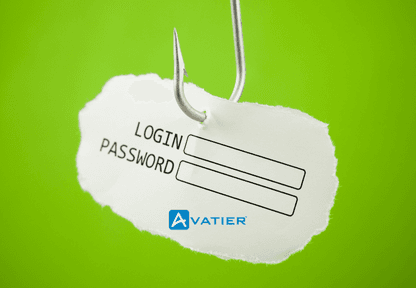August 29, 2025 • Mary Marshall
Digital Identity Future: Emerging Technologies
Discover how emerging technologies in digital identity management, driven by AI are transforming enterprise security and access governance.

Identity management lies at the heart of cybersecurity strategies. As businesses shift towards digital operations, the significance of protecting user identities has become paramount. Digital identity management is not simply about access control—it’s about creating secure, seamless experiences for users worldwide. Avatier, a leader in identity management solutions, is pioneering this transformation by integrating cutting-edge technologies like AI-driven identity management and automated workflows to redefine access governance.
The Current Landscape of Identity Management
Before diving into the future, it’s crucial to understand where we currently stand. Traditional identity management systems primarily focus on centralizing access controls and authenticating user identities. However, with the increase in digital transformation initiatives, these systems often struggle to keep pace with growing user demands and the complexities of managing distributed workforces.
One of the key challenges today is the sheer volume of identities that need to be managed across various platforms and applications. According to a report by Okta, the average company uses 88 different applications to run their business. This distributed environment requires a unified solution that can manage user access efficiently and securely.
Emerging Technologies Shaping the Future
Emerging technologies offer promising solutions for the evolving needs of identity management:
AI-Driven Security Enhancements: AI technologies, such as machine learning algorithms, are advancing rapidly, enabling more sophisticated security measures. AI helps in analyzing user behavior patterns, detecting anomalies, and preemptively managing threats before they cause harm. Avatier’s integration of AI-driven solutions helps improve decision-making processes and enhances security measures by predicting potential risks, thereby saving time and resources.
Automation in User Provisioning: Automated user provisioning is transforming how organizations handle user access rights. By automating these processes, organizations can ensure that employees and stakeholders have the appropriate access from day one, reducing administrative overhead and the risk of human error. This is especially critical as more businesses adopt remote work policies, necessitating robust and flexible identity solutions. Avatier’s automated provisioning systems make onboarding and offboarding seamless and secure.
Self-Service and Password Management: Self-service password reset tools are becoming increasingly popular, enabling users to manage their credentials without involving IT support. This reduces helpdesk workload, increases productivity, and enhances the user experience. By implementing AI, such tools can be further enhanced to provide secure, context-aware services. Avatier’s self-service password management solutions ensure that users maintain control over their credentials without compromising security.
Competing in the Identity Management Arena
Companies like Okta, SailPoint, and Ping Identity have dominated the identity management space for years, offering comprehensive solutions to various industries. However, many businesses are beginning to recognize the benefits of Avatier’s innovative approach—leveraging AI and automation to create flexible, user-centric experiences.
SailPoint places a strong emphasis on identity governance, focusing on providing complete visibility and management over digital identities. While this is vital, it sometimes lacks the agility of AI-driven decision-making. Avatier’s competitive advantage lies in its ability to integrate real-time analytics and automation, offering enhanced governance with the flexibility necessary for today’s dynamic workforce.
Ping Identity, known for its advanced API security capabilities, helps organizations manage user authentication across applications. Yet, Avatier offers a similar level of security with additional benefits through its Identity Management Suite, providing extensive customization options tailored to enterprise needs.
Trends Driving the Future of Digital Identity
Zero Trust Architecture: The shift towards a Zero Trust model—where verification is a constant and never a given—continues to gain traction. Zero Trust limits access on a need-to-know basis, thereby reducing the attack surface. Avatier’s solutions align with this approach, ensuring that access privileges are continuously assessed and modified as needed.
Biometric Authentication: As password-related threats grow, biometric authentication provides a robust alternative, ensuring that identities are verified through unique biological attributes. With the increasing sophistication of facial recognition and fingerprint scanning technologies, businesses can better safeguard their digital assets.
Decentralized Identity Solutions: Blockchain technology presents new opportunities in identity management by creating decentralized and secure identity ecosystems. These systems allow users to control their identity without centralized verification entities, promising a future where digital identities are safe from common threats like data breaches.
- Key Benefits of Avatier’s Approach
Avatier’s strategic focus on emerging technologies and its identity management solutions provide numerous advantages:
Scalability: By offering flexible solutions that can scale with organizational needs, Avatier ensures that businesses are prepared to handle future growth and change.
Unified Experience: Through a seamless integration process, Avatier delivers a comprehensive user experience that simplifies access across multiple platforms and devices.
Cost Efficiency: Automated provisioning and AI-driven management reduce operational costs by minimizing manual processes and maximizing resource utilization.
Conclusion: The Path Ahead
The future of digital identity is promising, driven by innovations like AI and blockchain that offer more secure, efficient, and user-friendly solutions. As organizations strive to keep up with technological advancements and evolving security requirements, embracing these emergent technologies becomes crucial.
Avatier stands at the forefront of this transformation, dedicated to developing advanced identity solutions that safeguard enterprises worldwide. By leveraging AI-driven insights, automation, and user empowerment, Avatier is not just responding to industry trends but shaping the future of identity management itself. For an organization ready to elevate its identity management strategy, explore Avatier’s offerings today and discover how cutting-edge technology can transform digital security into a competitive advantage.









